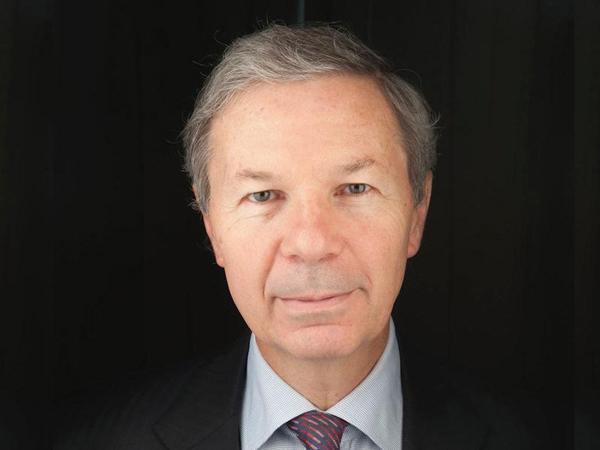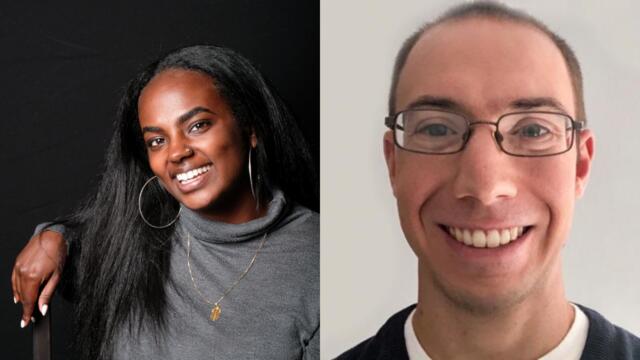
Facing the Future of Contemporary Conflict

Gender-based violence, forced displacement, armed conflict, and climate change—these are among the complex problems the world expects to face over the next several decades. One of SIPA’s newest initiatives, the Kent Global Leadership Program on Conflict Resolution, seeks to address these very challenges.
The Kent Program was established in December 2019 to help prepare the next generation of practitioners for the increasingly difficult challenges posed by contemporary conflict. Through training sessions, campus events, a visiting professorship, and fellowships for students, the program seeks to equip the peacemakers of tomorrow with a broad array of skills.
“SIPA is designed around key challenges in the world,” Dean Merit E. Janow said during the program’s ceremonial launch in December 2020. The Kent Program, she added, reflects SIPA’s commitment to prioritizing issues of global conflict as a significant aspect of teaching and research.
The program’s launch was made possible by a $6 million gift from Muhtar Kent, former chairman and CEO of the Coca-Cola Company. “I had this notion … that perhaps I could very marginally improve the solving of conflict and the prevention of conflict around the world, because I saw so much of it in the last 10 years,” Kent said at the program’s December launch event. “When I speak about conflict, I’m referring not only to political or armed conflict but also social, educational, religious, urban, economic, financial, business, [and] family conflict.” Along with recognizing the various dimensions of conflict, the Kent Program’s guiding principle is the importance of the golden triangle—collaboration between government, civil society, and the public, private, and nonprofit sectors—in solving global problems.
Jean-Marie Guéhenno became director of the Kent Program in March, agreeing to serve after the death of the founding director, Professor Edward C. Luck. Guéhenno is the Arnold A. Saltzman Professor of Practice in International and Public Affairs and director of SIPA’s specialization in International Conflict Resolution (ICR). A former faculty member, Guéhenno had returned to SIPA in January as the inaugural Kent Visiting Professor of Conflict Resolution. He is a member of the UN’s High-Level Advisory Board on Mediation and served as president and CEO of the International Crisis Group from 2014 to 2017. Previously, he was the UN under-secretary-general for peacekeeping operations.
Luck was a leading expert in international conflict and the United Nations. Most notably in recent years, Luck was known for his work on the UN’s Responsibility to Protect, a doctrine that aims to prevent genocide and other atrocities. The scholar and practitioner taught classes and ran SIPA’s specialization in ICR until his death in February after a battle with cancer. The Kent Program aims to carry on Luck’s legacy and vision through a commitment to humanitarianism.
Fostering Dialogue among Practitioners
Despite the challenges brought on by the pandemic, the Kent Program hosted multiple virtual events in its first official year. These included its inaugural weeklong seminar for conflict resolution professionals.
The Executive Seminar on Conflict Resolution, organized by Guéhenno and ICR specialization coordinator Brit Felsen-Parsons, focused on how to involve the private sector in peacebuilding and post-conflict reconstruction.
The five-day event took place from June 28 to July 2 and featured discussions on private sector engagement, social impact investing, and the future of conflict resolution. Two of the days were devoted to case studies from Colombia and the Democratic Republic of the Congo (DRC). For the Colombian case study, government ministers, journalists, and former members of the Revolutionary Armed Forces of Colombia (FARC) gathered to discuss lessons learned from that country’s peace process. Discussion of the second case study was devoted to the role of natural resources in conflict and as an asset in the DRC and featured conversations between mining executives, government officials, and researchers.
The week closed with a conversation with Juan Manuel Santos, former president of Colombia and a Nobel Peace Prize winner. Seminar participants—who were mid- and senior-level diplomats, included ambassadors to the UN, and hailed from over 15 countries—also took part in group discussions throughout the week to discuss the lessons learned from the panels.
“I think it’s part of the DNA of SIPA to bring practitioners and to confront them with academic discussions,” Guéhenno said. He wants the Kent Program to have a strong practical and policy-oriented dimension, and the executive seminar aims to do just that. “Sometimes [practitioners] don’t have the time to reflect on what they’re doing,” he said. “It’s a dialogue between people who have their feet in the mud and people who have the time and distance to reflect.”
The Program’s Year in Review
In October 2020 the Kent program hosted a conversation with Peter Maurer, president of the International Committee of the Red Cross (ICRC), about the future of conflict resolution in a changing global landscape. Maurer discussed some of the most striking trends in the past several years, including the growing number of non-state armed groups in conflict situations. He also noted the urbanization of warfare and how the increased prevalence of conflict in cities can have significant negative impacts on civilian populations.
The Kent Program’s ceremonial launch took place in December 2020. The event featured a discussion, moderated by Luck, among leading experts in the field, who shared insights from their respective sectors.
Lakhdar Brahimi, a former UN diplomat, reflected on areas in which the UN can improve when handling conflict. He said peacebuilders should be more informed about local contexts, and countries should be empowered to establish the rule of law themselves instead of having to rely on foreign organizations.
Former senator Sam Nunn, who cochairs the Nuclear Threat Initiative, spoke about the importance of nuclear dialogue and identified cyber warfare as a new and increasingly dangerous form of conflict.
David Miliband, president and CEO of the International Rescue Committee, raised the issue of the growing numbers of displaced peoples as a result of violence. Dina Kawar, Jordanian ambassador to the United States, highlighted key issues in the Middle East, from Syria and Yemen to the Israeli-Palestinian conflict. Rosemary DiCarlo, UN under-secretary-general for political and peacebuilding affairs, stressed the important role of civil society in resolving conflict.
In March, Guéhenno delivered a lecture in his capacity as visiting professor about the complexities of modern conflict. In his discussion, he explored the vulnerabilities of global connectivity and interdependence, as evidenced by the pandemic as well as the climate crisis, which has already begun to drive mass migration.
A Force for positive change
The Kent Program also provides fellowships to SIPA students to pursue degrees with a specialization in conflict resolution or related fields, including international security, human rights, and humanitarian assistance. This year the program supported two students: Galeela Michael MIA ’22 and Michael Thomson MIA ’22.

Galeela Michael is concentrating in Economic and Political Development, with a regional specialization in Africa. She hopes to pursue a career that creatively leverages technology to support people in emergency situations, specifically in the Horn of Africa.
Thomson is concentrating in International Security Policy and specializing in International Conflict Resolution as well as International Organization and United Nations Studies. After SIPA, he intends to pursue a career in international peacemaking, either in supporting peace processes or in conflict analysis research.
Over the coming years, the Kent Program will develop a global network of alumni, instructors, scholars, and practitioners devoted to advancing a collective understanding of ways to enhance conflict resolution.
“We must always look for ways to make positive change in the world, no matter how daunting the challenge,” Muhtar Kent said upon the launch of the program in 2019. “I believe this innovative program will play a vital role in furthering this important work.”
This story appears in the most recent issue of SIPA Magazine, published in October 2021.